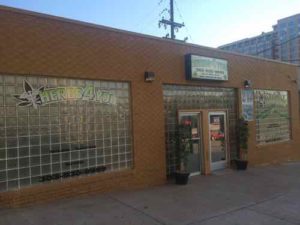St. Louis Board of Aldermen: New Board Bills Week 8 of 2019-2020 Session

The St. Louis Board of Aldermen will meet at 10am today, their 8th meeting of the 2019-2020 session. As noted last week, they have the first two meetings labeled as Week #1, so they list this as week/meeting 7.
Today’s agenda includes six (6) new bills:
- B.B.#55 – Davis – Redevelopment Plan for 1900-34 Dr. Martin Luther King.
- B.B.#56 – Davis-An Ordinance recommended and approved by the Airport Commission, the Board of Public Service, and the Board of Estimate and Apportionment, establishing and authorizing a multi-year public work and improvement program at St. Louis Lambert International Airport, which is owned and operated by The City providing for and consisting of capital improvement projects to and for the terminal complexes, concourses, parking facilities and garages, and associated Airport buildings, structures, and facilities, roadways, driveways and environs, Airport runways, taxiways, aprons, ramps, and associated airfield buildings, structures, facilities, and environs, and other associated Airport improvements or programs more fullydescribed on EXHIBIT A, entitled (“PROJECT LIST”) RD.
- B.B. #57-Davis- An Ordinance recommended and approved by the Board of Estimate and Apportionment authorizing and directing the Director of Airports and the Comptroller, owner and operator of St. Louis Lambert International Airport to enter into and execute the Shared Ride Shuttle Concession Agreement between theCity and Airport Best Taxi Service, LLC, (“Concessionaire”),granting to Concessionaire, certain rights and privileges in connection with the occupancy and use of the Premises, which is defined and more fully described in Article II of the Agreement that was approved by the Airport Commission and isattached hereto as ATTACHMENT “1” and made a part hereof,and its terms are more fully described in Section One of this Ordinance; containing a severability clause; and containing an emergency clause.
- B.B.#58-Ingrassia- An Ordinance, recommended by the Board of Public Service, establishing a public works and improvement project for the I-64 at Jefferson – City Streets Project in the City.
- B.B.#59-Roddy- An ordinance recommended by the Board of Estimate and Apportionment authorizing and directing the issuance, reissuance and delivery of one or more series of tax increment revenue notes, including (a) increasing the not to exceed principal amount of previously-issued RPA 5 tax increment revenue notes (St. Louis Innovation District/RPA 5 Project), Series B (the “RPA 5 Series B Notes”), from an original aggregateprincipal amount of $2,000,000, plus issuance costs, to an aggregate principal amount not to exceed $7,200,000, plus costs of issuance, for certain Reimbursable Redevelopment Project Costs associated with Redevelopment Project Area 5 of the St. Louis Innovation District Redevelopment Area; and (b) tax increment revenue notes (St. Louis Innovation District/Area-wide Projects), Series 2019 (the “Area-wide Series 2019 Notes”),in an aggregate principal amount not to exceed $42,000,000, plus costs of issuance, for certain Reimbursable Redevelopment Project Costs associated with the Redevelopment Area-wide Projects; authorizing and directing the Mayor and the Comptroller to execute and deliver the Amended and Restated Fourth Supplemental Trust Indenture in connection with the reissuance of the RPA 5 Series B Notes, and to execute and deliver the Seventh Supplemental Trust Indenture in connection with the issuance of the Area-wide Series 2019 Notes; and containing a severability clause.
- B.B. #60-Muhammad-Pursuant to Ordinance 68937, an ordinance authorizing the honorary street name Sarah Tillard Lane, which shall begin at the intersection of San Francisco and North Newstead and run northwest on San Francisco to the intersection of San Francisco and North Taylor.
The meeting begins at 10am, past meetings and a live broadcast can be watched online here. See list of all board bills for the 2019-2020 session — the new bills listed above may not be online right away.
— Steve Patterson

